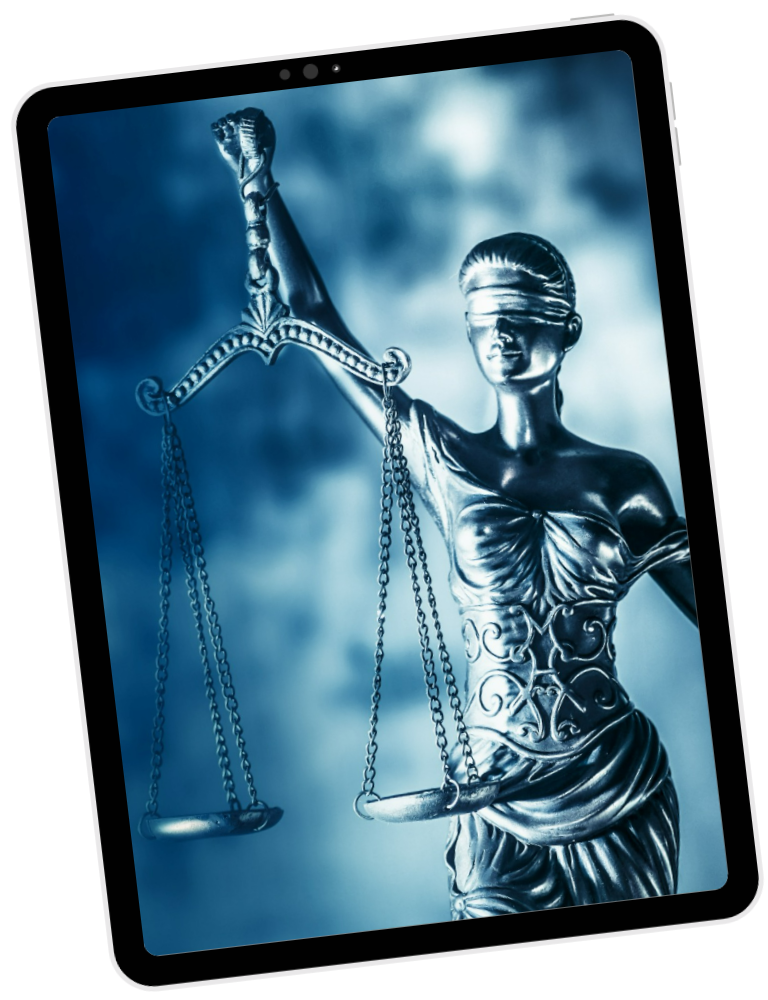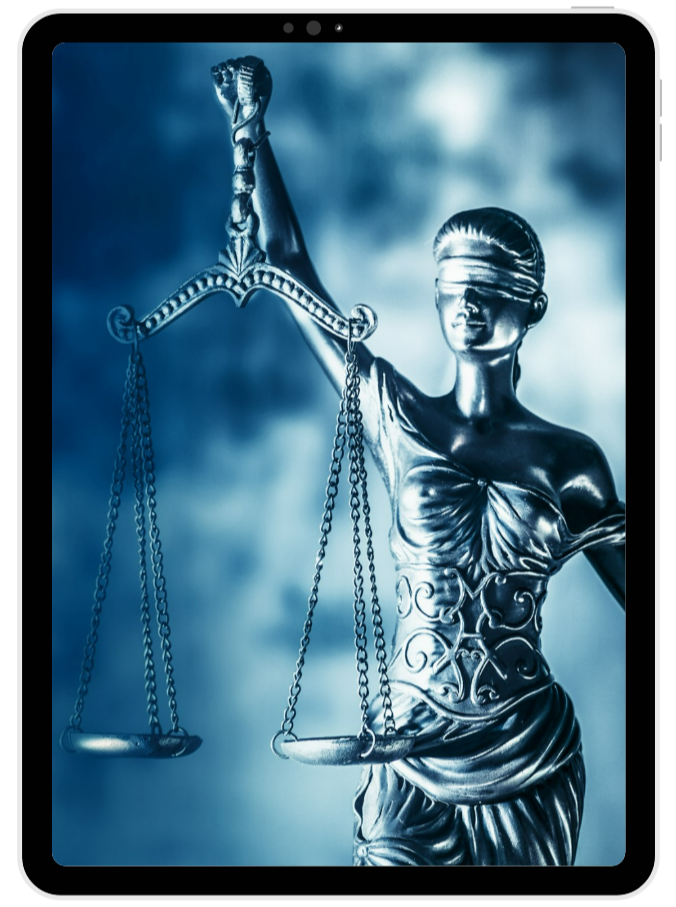A hugely common question I get is: should I write a diversity statement for law school?
Many assume they’re not diverse enough to write one, or they don’t really understand what law schools even mean by “diverse,” or they’re not sure how to differentiate between what they wrote in their personal statement from what they might write in their diversity statement.
This confusion is understandable.
For one, these essays are entirely optional. There is no requirement, for any school, that you write one. So figuring out whether it is strategic to write a diversity statement for you can often be difficult.
Second, law schools are not consistent in how they define “diversity” or what the diversity statement should talk about.
For instance, Harvard Law’s diversity prompt is quite vague and broad:
The Admissions Committee makes every effort to understand your achievements in the context of your background and to build a diverse student body. If applicable, you may choose to submit an optional additional statement to elaborate on how you could contribute to the Harvard Law School Community.
Columbia Law’s diversity prompt is similarly vague:
Applicants, if they wish, may submit brief supplemental statements that will provide useful information to the Admissions Committee in evaluating the application. The Committee especially welcomes addenda that allow it to understand the contribution your personal background would add to the Columbia Law School community.
Berkeley Law gets a bit more specific, and at least attempts to define “diversity” for you:
How will you (your perspective, experience, Voice) contribute diversity in our classrooms and community?
Our definition of diversity is broad. You are welcome to talk about characteristics such as: race/ethnicity, gender identity, sexual orientation, disability, socio-economic background, first generation college or professional student, student parent, re-entry student, geographic diversity, ideological diversity, and others.
Should You Write a Diversity Statement for Law School?
The ambiguity of what law schools mean by “diverse” leaves many applicants wondering: so…should I write a diversity statement for law school or not? Am I “diverse” enough for this school to warrant writing a diversity statement? Or will I just sound out of touch?
To understand whether or not you should write a law school diversity statement, you need to first understand the point of these essays. Let’s put ourselves in the mind of an admissions officer.
Law schools really do want a diverse class. They want students from different backgrounds, with different interests, aspirations, and perspectives. This is both useful from an academic perspective—multiple points of view and backgrounds will lead to a richer academic environment—but also from the vantage point of having a deep and diverse group of alumni, pursuing different paths. There is also (hallelujah!) an increasing recognition that the legal field is one of the least diverse professions in the nation—and that this is a serious problem.
So law schools are actively looking for ways to diversify their class.
And we’re all unique and diverse in some way, right? So shouldn’t everyone write a diversity statement then, to show how they are different?
No.
While you want to give law schools every opportunity to know you, and to know what you can bring to the table, this doesn’t mean that everyone should write a diversity statement.
However, I do find that for my clients, most people assume they should not write a diversity statement, when the actually should; i.e., they do in fact have something important and insightful to offer.
Here are a few factors to think about when deciding whether to write a law school diversity statement:
First, and foremost, read each school’s specific prompt. Every school’s diversity statement prompt is different, so some may limit you to very specific categories, such as race, socioeconomic status, disability, sexual orientation, and other traditionally “diverse” categories.
But the majority of schools offer a broad definition of diversity, as we saw above, and will have a generic catchall such as how your “personal background” will contribute to the law school community. These generic prompts leave open the opportunity to write about a lot more topics.
Second, think about who you are and what you’ve done, and whether anything integral to how you will contribute to the legal field was left out from your personal statement.
Your diversity statement should talk about something different than your personal statement. So if your personal statement covers your diversity, then no need to write a diversity statement. However, if there is a different angle or perspective you didn’t talk about in your personal statement, you could share that in a separate diversity statement.
Finally, Your diversity statement topic does not have to relate to your reason for going to law school. It really is an opportunity to share more about who you are and where you came from, and how that gave you a unique perspective that you’ll bring to the law school.
Some past topics my clients have written about are:
- Ethnic, racial, or national identity
- Sexual orientation or gender identity
- Socioeconomic status
- Alternative or difficult upbringing (i.e., raised by non-traditional parents, foster care, etc)
- Military or law enforcement service
- Taking on extraordinary responsibilities compared to other law applicants (parenting, working to support family, etc.)
- First generation status
- Religion
- Disability
- Adversity or obstacle
- Change of careers
Ask yourself!
- How has my life and experiences been different from my peers?
- What have I experienced that is outside the “norm” for American culture?
- What do I want law schools to know about me that I haven’t told them in my personal statement?
When You Should NOT Write a Diversity Statement For Law School
Not everyone will have a topic that falls within the diversity statement parameters.
And that is ok!
Do not force a diversity statement. It can and will hurt you.
It is better to have no diversity statement at all, than to have one that makes you look detached from reality or exaggerating an experience to make you appear more diverse.
For instance, don’t write about: having to go to public school, sports injuries or athletic disappointments, your undergraduate major, working only a few hours a week while in college, not getting into a fraternity that everyone in your family has been in, etc. (yes, these are all real life examples people have proposed to me).
Remember, there are many many applicants who have gone through very real and serious adversity. You talking about the fact that you had to go to public school will not compare, and will make you look like you are not steeped in reality—something no law school will want.
Also, as stated above, if your personal statement already covers your diversity statement topic, you do not need to write an additional diversity statement.
Similarly, if you wrote an addendum that covers the same topic, you may want to consider writing either only an addendum or only a diversity statement. Ultimately, you don’t want your diversity statement to just be a regurgitation of something you’ve already discussed.
How Long Should a Law School Diversity Statement Be and How to Write One?
The diversity statement length requirements will vary by school, but typically they are very short, no more than a single page double spaced.
Which means, you need to get to your point asap.
The point of the diversity statement is to share how whatever unique experience(s) you’ve had, will contribute to the law school community.
So you want to make sure you focus on how whatever experience you’re talking about has shaped your worldview and perspective on the world. Even if others are included in your story, it ultimately needs to be talking about how that has shaped who you are.
The topic matters less than how you tie it back to who you are and how you view the world.
The diversity statement is your time to be vulnerable. It doesn’t have to be about anything related to law school or your career goals. It truly is a time where you get to share who you are and add color to your application. It’s a way to get admissions officers to root for you!
Ask yourself!
- How did this experience/background inform who I am and my perspective?
- What challenges have I faced and how did those challenges change who I am?
- How will my unique perspective impact others?
Law School Diversity Statement Examples from Real Applicants
Notice how in all the examples, despite having very different stories to share, they each make sure to show how their unique background/experiences shaped their perspective. That is the key—what perspective you will be bringing to the classroom.
EXAMPLE 1: Socioeconomic background + race
This client talked about his Black identity a lot in his personal statement, which is why he focused his diversity statement on his socioeconomic circumstances growing up.
I spent my early childhood living in one room in my grandma’s basement with my family of four. There were nine of us in one house, with soon to be 10 when my youngest brother was born. Despite being so young, I have vivid memories of living in that one room—me and my brother sharing an air mattress, my parents sleeping on a pull-out couch, all of us eating meals on small foldable picnic tables. I didn’t realize then that finances were tight, but looking back I now understand the many dinners of ramen and vienna sausages, the trips to dollar stores for toys, and the overreliance on how my dad did at the casino. We did not have much and living in one room was stressful for all of us. With these living conditions, I learned humility from a young age, to be thankful for what I did have, and that family is of the utmost importance.
A few months after my youngest brother was born, when I was nine years old, my parents divorced. My two younger brothers, mom, and I moved out of my grandma’s house leaving our grandparents, father, cousins, and uncle behind. Coming from a bi-racial family this was extremely difficult as I left my Black family members and my only connection to that part of my identity, forcing to me learn how to exist in a world that saw me as Black, without my Black father to guide me.
I quickly came to the realization that I was now the oldest male in the new house and I took it upon myself to help my mom out in any way I could and be a role model for my younger brothers. I focused on excelling in school and trying to be the least amount of trouble for her. With this I became the one in my family to progress furthest in academics, and pursue things that are “out of the box” like studying abroad.
The pressure to be the one to succeed is constantly with me, both because I feel like I owe it to my mother and all she sacrificed to give me the opportunities I’ve had, but also because I feel like I owe it to other Black men who too often don’t get the opportunities I have had. It is a pressure that pushes me and serves as a constant motivator to advocate for marginalized communities. I watched my mother raise my brothers and I for the last 13 years, and her hard work, perseverance, selflessness, and humility are attributes I try to carry with me in everything I do, including my legal career.
EXAMPLE 2: Culture
Every Hawaiian has what we call “Kuleana” which translates to responsibility. My Kuleana is to preserve my culture by sharing it. I embrace my traditions while also allowing others to understand it. Being underrepresented, while sometimes challenging, places me in an important position to be a speaker and leader for my people. Being Hawaiian has imbued me with a sense of duty to focus on the future of my people by being a voice for them.
There are two common points of views for Hawaiians. Those who want to “secede” from America, and keep our traditions to ourselves. Then there’s the group that thinks Hawaiians should embrace and assimilate to American customs. I fall in the middle. This is a complicated place to be, because even my immediate family has chosen a side. I straddle these two ideologies by creating my own—one that continues the traditions by educating not only Hawaiians, but everyone, about our culture and history.
I’ve always found that others were interested in the surface level aspects of being Hawaiian. People loved it when I said my full name. I would tell them my last name translated to “commandment” and that it has significance because my family comes from a long line of chiefs and Hawaiians believed in divine rules and the importance of leading others. My friends would ask me to bring my ukulele to bon fires to play for everyone. I would play songs for them on the ukulele about Hawaiian traditions and explain the significance. For the most part, I liked this. It was exposure and I enjoyed sharing my culture with others. I would also use it as an opportunity to further educate. I would talk about the struggles Hawaiians have faced, or remind of the history behind popular tourist destinations.
Opening the door with others to talk about my culture has shaped how I view diversity in the face of conflict. I don’t just see one side. Hawaii made the news with protests involving a telescope being built on sacred ground. I saw members of my community crying to be heard and standing up for what they believed in. I also saw how the other side may not be malicious—people don’t understand Hawaiian customs or why the land is so sacred, they only understand what they know. I take from these conflicts even more of a responsibility to educate others about Hawaiian culture and be a voice for my people. With so few Hawaiian attorneys, my pursuit of a legal career is part of this responsibility.
EXAMPLE 3: Family background
Note that this diversity statement focuses on her mom’s story in the beginning, but ultimately the essay is centered around how her mother’s story impacted her. Remember, your diversity statement always needs to come back to how your background has impacted your perspective.
We were a military family, skilled at packing away a home – a life – with labels of honor and sacrifice. It was these words that my father whispered to me as he left on “reassignment” trips with unlimited time frames, and it was “service and sacrifice” that my mother thought about as she worked a full time job and cared for her five children while my father was gone. But my mother was no stranger to hard work. She became emancipated from her family when she was sixteen, moving from rural South Dakota to dance for the American Ballet Company in New York. From the time she was thirteen she had been preparing to leave, working shifts at nursing homes. At nineteen, my single mother put herself through college – the first in her family – and moved with my sister in tow from the projects of Brooklyn to the dorms of Downstate Medical School, ignoring her college advisor’s warning that medicine is not “single-mother work.” It was in medical school that she met my father and became a military wife.
My mother made it clear that material wants were our own concerns. I still have the American Girl Doll I bought in third grade, earned from various entrepreneurial ventures: my brother and I dragging our mini rakes to neighbors’ houses, my sister and I making homemade greeting cards and selling them to bemused and sympathetic neighbors. My parents divorced when I was twelve, and my father became an even more occasional presence in my life, returning my mother to the role of single mother. With five kids and a full-time job, my Mom relied on me to take on a lot of the responsibility for caring for my younger siblings. From the time I was in middle school, I was the one cooking dinners for the family, making sure homework was completed, and that rooms were cleaned. Throughout high school and college I worked as a nanny and tutor.
With my mother’s sacrifices a constant backdrop in my mind, I feel a sense of responsibility to make a better life for the next generation. I have been given the blessing of free agency, which has allowed me to pursue a career as an aspiration rather than an obligation. I feel an overwhelming responsibility to give to others the same opportunities that my family has worked so hard to give to me.
EXAMPLE 4: Family background + culture
As with the previous example, not how this applicant writes about her parents, but ultimately the focus is on how that shaped her.
My father came to the United States from China when he was nineteen years old. He did not have money and he was unable to speak any English. He attended classes at Pasadena City College while working three jobs and sleeping in his car. After transferring to Cal Poly Pomona, he met my mother who was also a community college transfer student. My mother comes from a poor, white family from Southern California’s Inland Empire. Her mother was fifteen at the time of her birth and her father an abusive alcoholic that was in and out of jail for most of her life. Despite the most difficult of circumstances, my parents graduated college with civil engineering degrees and have devoted their lives to working in the public sector for the past thirty years.
My parents did not always understand each other’s cultures, but they always respected one another. There were many things they did for each other that were sometimes out of their comfort zones. For my father, it was attending church despite a lack of belief in western religion. For my mother, it was visiting with my father’s extended family and being excluded from conversation because Chinese was the only language spoken at the dinner table. Watching my parents extend themselves beyond what was comfortable to them as individuals taught me that race, religion, and language are not the only things that connect people.
As I got older, this realization helped me reconcile my personal struggles with being biracial. At times, I felt as if I had to over identify with being white and reject my Chinese culture. People would often refer to me as “half Chinese” or “half white,” but I never felt like those descriptions captured my existence as a whole person. I began to understand that my contribution to my Chinese culture does not depend on my physical features, my ability to speak fluent Mandarin, or any other predetermined category associated with belonging to a group. I proudly identify as a Chinese-American and I know that my individual experiences are just as valid within the community, even if they do not look the same as someone else’s.
EXAMPLE 5: Sexuality + family
Growing up, I tried fitting into a lot of different boxes. I didn’t want to disappoint anyone, and mistakenly believed that repressing my sexuality, my opinions and my mom’s Chinese heritage was the only way I’d ever find happiness. When my dad made statements like, “gay people should all be sent to an island,” I nodded along, choosing to hide the fact that I was a gay woman. When my mom, a Maoist, and my dad, a Libertarian, argued about the merits of Capitalism, I would perform mental gymnastics to reconcile their ideologies, rather than voicing my own beliefs. At school I fastidiously hid any evidence of my mom’s Chinese heritage in order to try to assimilate to the norms of my predominantly white town.
Then I started dating a woman who hadn’t gone to college, worked in the service industry, openly voiced strong opinions and was proudly Mexican and Queer. She defied everything I believed necessary for a “successful” life, and she was happy. The fulfillment she had in her life helped me realize that I was mindlessly going through the motions of living. I had an unfulfilling job, and constantly hid my sexuality, opinions and cultural identity because I was trying to live up to other people’s expectations.
With the weight of this realization, I spent the next several years in a frantic journey of self discovery. I left my career in Finance, moved to China to connect with my heritage, strengthened my Chinese language skills, found the courage to come out to my family and friends, and embarked on a quest to find my voice and a career that could make a meaningful impact on people. I slowly started to shed the loneliness and the sense of not belonging I had felt since childhood. I rushed to connect with as many people as I could and voraciously learned about philosophy, sociology, technology and the future of humanity. .
While I have been able to finally create a life that is wholly my own, I value the perspective this journey has given me. I have not only learned that there are many “right” ways to live, I have also learned that I couldn’t strong arm my dad into accepting me when I came out; instead I needed to educate and empathize with him in order to foster a newer and stronger relationship. Now when I see people who have disparate views, I know how to better forge connections and understanding. In a world that is becoming increasingly more divided and insular, I feel fortunate to have learned how deep compassion and empathy for people that are different than me is key to a truly fulfilling life.
Next steps
That’s it! That’s how you write a law school diversity statement.
Do you to get admitted to law school?
Read more about my law school admission consulting services!





